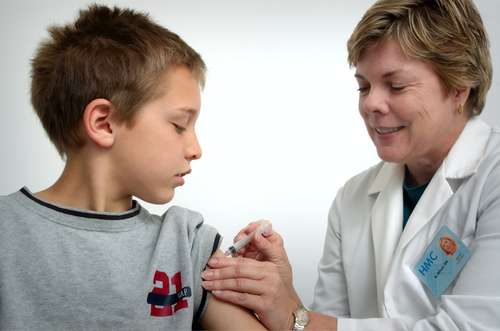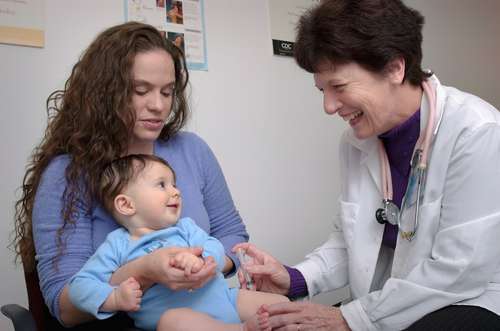Breast Cancer Screenings: Early Detection Saves Lives
Breast cancer remains one of the most common health challenges for women, and the truth is, early detection can often be the difference between life and death. Many of us have heard the tales about the benefits of early diagnosis and the vital role of screening, but how often do we really dig into why these screenings are so essential? With the growing emphasis on women's health and the inspiring efforts during breast cancer awareness month, regular screenings have become a beacon of hope for countless individuals.
Deciding to prioritize your health can sometimes feel overwhelming. The reminder to schedule that whole body checkup might slip past your mind if you're busy juggling work commitments, family life, or even managing conditions like menopause or premenstrual syndrome. However, the simple act of scheduling a screening appointment, much like checking in on an early childhood intervention program for a child, can pay off enormously in the long run. Routine mammograms and advanced imaging techniques ensure that any potential issues can be spotted before they escalate into more serious problems.
If you’ve ever wondered about the value of visiting an obgyn near me or even a gyno near me for a second opinion, remember that these visits are not just about addressing current concerns—they’re about taking proactive steps for your health. Learning from reputable organizations, such as the American Cancer Society and insights shared by uk cancer research, you might feel reassured knowing that these screening practices are constantly being improved and refined.
Importance of Regular Screenings
Regular breast cancer screenings are a key pillar in the ongoing fight against this life-altering disease. Early detection is crucial because it can significantly improve survival rates. When breast cancer is found at an early stage, treatments are generally more successful and less invasive.
The analogy often made is like catching a small leak before it floods your house. Instead of waiting until a big leak causes major damage, getting checked early allows you to address issues before they worsen. With technologies such as 3-D mammography complementing traditional methods, the opportunities for early diagnosis have never been better.
Moreover, early screenings reduce the need for aggressive treatments later on—a win not only in terms of survival but also in quality of life. For instance, women navigating fibroids or the challenges of menopause may find additional reassurance that their regular screenings can help monitor other related conditions. A simple mammogram can open up a thorough discussion regarding overall women's health, ensuring that nothing is left unchecked.
Many women have shared their personal experiences, expressing gratitude for those routine screenings that caught problems early. If you've ever felt unsure about where to turn, searching for an obgyn near me or a gyno near me could be the vital step in safeguarding your future.
Advanced Screening Technologies
Technological advancements in breast cancer screening have revolutionized early detection. Techniques like digital mammography enable faster and more accurate images, making the screening process quicker and more effective.
Imagine upgrading from an old, grainy camera to a high-definition one—suddenly every detail is clearer and more precise. Similarly, 3-D mammography, which offers improved visualization of breast tissues, can help detect tumors that might go unnoticed with standard 2-D imaging. This breakthrough is particularly important for women with dense breast tissues, where traditional methods might fall short.
Integrating such advancements into routine checkups adds another layer of confidence. It’s not just about catching cancer early—it’s also about better understanding overall breast health. Given the significant role that early diagnosis plays, it’s clear that investing in advanced screening technology is a crucial step forward.
In our everyday lives, we make choices that cater to our immediate needs. The decision to upgrade your health routine with these advanced technologies serves as a reminder that our well-being is the cornerstone of our overall happiness.
Health Expert Recommendations and Guidelines
Health experts continuously stress the importance of regular screenings. According to the guidelines provided by the American Cancer Society, women between the ages of 45 and 54 are encouraged to get annual mammograms, while those aged 55 and older should consider biennial screenings. Whether you’re visiting an obgyn near me or casually browsing for a gyno near me, these recommendations are designed with your safety in mind.
These recommendations are not arbitrary. They have been shaped by years of research, clinical studies, and a wealth of data supporting early intervention. Every appointment and every image taken via digital or 3-D mammography is a step towards ensuring a healthier future. The numbers truly speak for themselves—early detection through screening significantly boosts survival rates and offers women the chance to lead long, fulfilling lives.
It’s comforting to know that your regular screenings are part of a larger movement in women's health. Organizations like uk cancer research continue to fund studies and advocate for better policies, which means that the tools available to us today will only improve in the future. These improvements not only help in identifying abnormalities early but also in easing the overall treatment process.
It is awe-inspiring to witness how technology and expertise converge in our fight against diseases. If you think about it, every doctor’s recommendation is like a user guide for your body—helping you navigate through potential problems before they become emergencies.
Connecting With Your Healthcare Provider
One of the most crucial steps in early breast cancer detection is effectively communicating with your healthcare provider. Establishing a constant dialogue about breast health ensures you’re always informed and empowered to make decisions that suit your unique needs.
When I think of connecting with a doctor, it reminds me of nurturing a long-term friendship where trust is built gradually over time. Having consistent checkups lets you discuss changes in your body, address conditions such as fibroids, or talk about concerns related to menopause. This continuous monitoring might lead to discussions about whole body checkup routines or even strategies to handle premenstrual syndrome effectively—all part of a comprehensive approach to well-being.
The best part is that your doctor becomes a partner in your health journey. Every appointment is a reminder that you are prioritizing yourself, and investing in regular breast cancer screenings is an act of self-care that has the power to change your life.
When you finally schedule that screening, you’re not just marking another appointment on your calendar—you're taking control of your health. And remember, a simple visit to an obgyn near me could very well be a game changer in ensuring your long-term wellness.
Your Health, Your Future
The road ahead is full of possibilities, and taking proactive steps today can lead to a healthier tomorrow. With early breast cancer detection, treatment is less daunting and outcomes are significantly improved.
Are you ready to take charge of your health? Think of scheduling your next screening as investing in the quality of your future life. It might seem like just another checkup, but in reality, it’s one of the most important decisions you could ever make. This truly is a time when being proactive can save lives.
In our rapidly evolving world of medical science and advanced technologies, early detection stands as the greatest testament to human innovation and hope. Whether it’s through a routine whole body checkup, visiting a gyno near me, or simply keeping up with our personal wellness regimes during breast cancer awareness month, every step counts.
Breast cancer screenings not only detect the presence of the disease but also highlight our commitment to early childhood intervention program mindsets—taking preventive steps before issues become critical. In the end, knowledge and action go hand in hand in the collective effort to ensure a brighter, healthier future for all.




